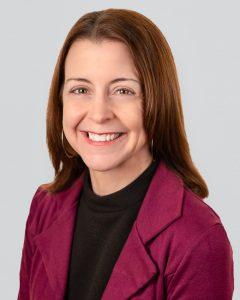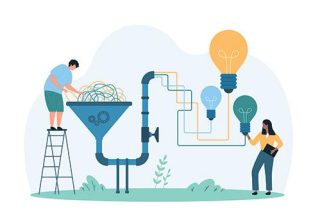Educators often feel pulled in multiple directions, but for many, that feeling is especially acute right now. Navigating schools’ competing priorities, students’ increasing needs, and intense public pressures can feel like trying to travel across the cover of this issue — on winding roads, with confusing signs and no clear path.
In times like these, we need guides who have encountered similar obstacles before or who have specialized knowledge about the terrain. That’s why, for this issue of The Learning Professional, we have invited some expert guides to help us journey along the path of uncertainty. Some of them are blazing new trails, while others are bringing attention to well-established practices that can be applied to the challenges we’re facing today.
This issue’s authors don’t have all the answers, and they are grappling with confusion and controversy, just like the rest of us. But they have learned how to approach some of schools’ biggest challenges and developed strategies that are helping educators and students succeed, even in the face of difficulty.
At Learning Forward, we often talk about openness and vulnerability as key conditions for effective professional learning. Learning something new takes a willingness to admit what we don’t already know, and trying something new requires that we take risks — risks supported by evidence and expert guidance, but risks nonetheless.
Sometimes, talking about controversial topics is a risk in itself. But talking, reading, exploring, and reflecting on challenging topics are essential to understanding our knowledge and beliefs and making decisions about how to proceed in the best interest of students. This issue is designed to provide food for thought, with new perspectives to consider and new strategies to try, not a set of definitive answers.
This issue also includes a section focused on continuous improvement processes. The principles of improvement science and related approaches can help educators at all levels and in all roles address, intentionally and systematically, pressing problems of practice. They provide tools and processes to examine the problems’ underlying causes, design change ideas, monitor progress, assess outcomes, and make adaptations as needed. These processes can help us make sense out of confusing challenges in turbulent times and make sure that we’re on the right track.
In this issue, we also continue our focus on supporting your implementation of the recently revised Standards for Professional Learning. In the Voices section, you’ll find the first installment of a new column, Networks at Work, that illustrates how Learning Forward’s networks are applying the standards and supporting network members to implement them in their own contexts. The Tools section features a resource that outlines how educators in multiple roles share responsibility for implementing the standards and highlights what you need to know and where you can start. Elizabeth Foster’s research column explains how the standards are visible in the latest professional learning research, and Through the Lens helps you consider how to apply standards-aligned strategies and lessons from this issue in your own work.
As you navigate your own challenges, we invite you to read archived issues of The Learning Professional, search professional learning tools, and access other Learning Forward resources at lfstage.xyz. If you have a question or a need that isn’t addressed there, let us know what you’d like to see in future issues, webinars, and courses. We’re all in these turbulent times together.

Suzanne Bouffard is senior vice president of communications and publications at Learning Forward. She is the editor of The Learning Professional, Learning Forward’s flagship publication. She also contributes to the Learning Forward blog and webinars. With a background in child development, she has a passion for making research and best practices accessible to educators, policymakers, and families. She has written for many national publications including The New York Times and the Atlantic, and previously worked as a writer and researcher at the Harvard Graduate School of Education. She has a Ph.D. in developmental psychology from Duke University and a B.A. from Wesleyan University. She loves working with authors to help them develop their ideas and voices for publication.
Recent Issues
LEARNING TO PIVOT
August 2024
Sometimes new information and situations call for major change. This issue...
GLOBAL PERSPECTIVES
June 2024
What does professional learning look like around the world? This issue...
WHERE TECHNOLOGY CAN TAKE US
April 2024
Technology is both a topic and a tool for professional learning. This...
EVALUATING PROFESSIONAL LEARNING
February 2024
How do you know your professional learning is working? This issue digs...










